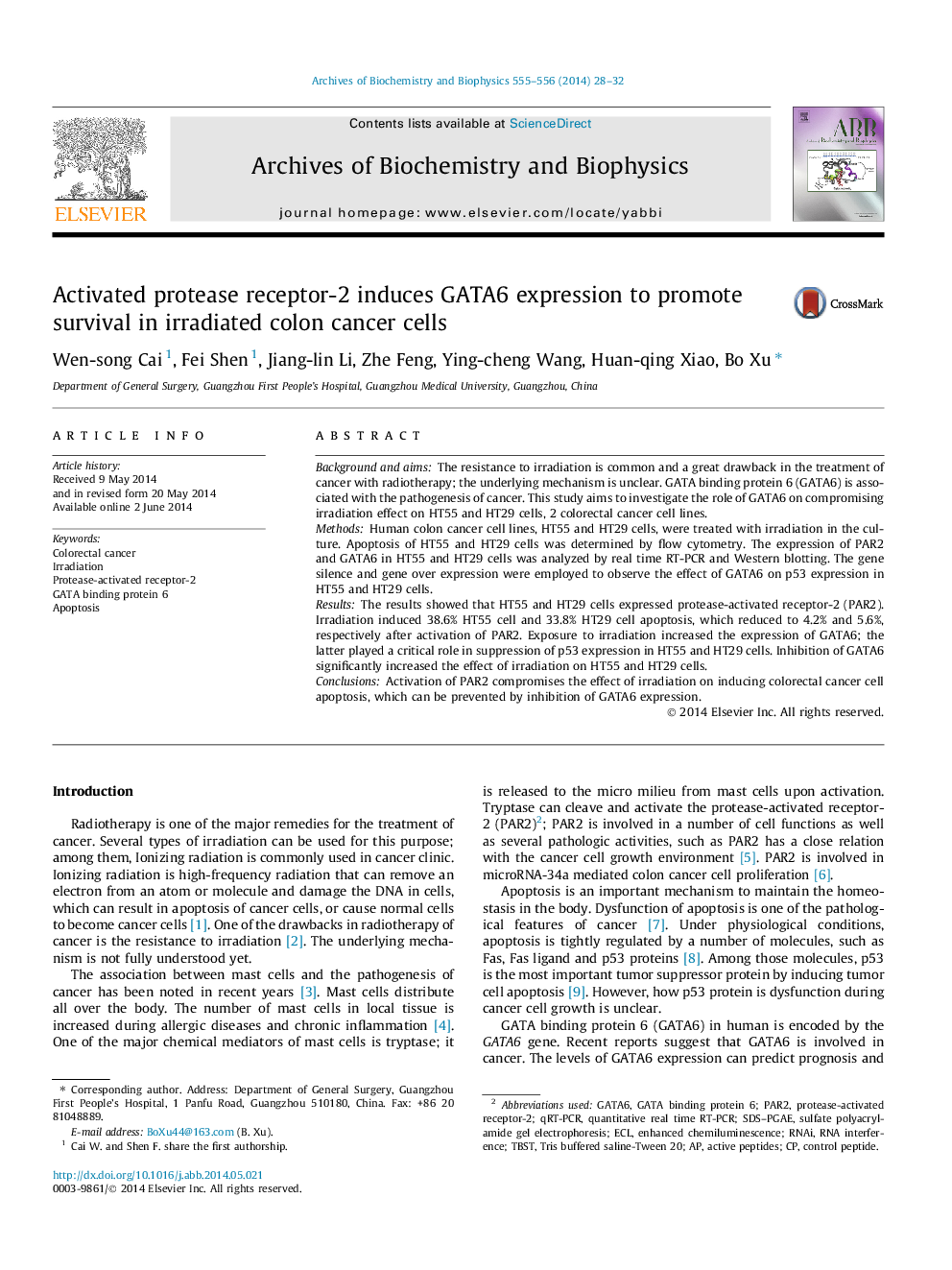| Article ID | Journal | Published Year | Pages | File Type |
|---|---|---|---|---|
| 1925144 | Archives of Biochemistry and Biophysics | 2014 | 5 Pages |
•HT55 and HT29 colon cancer cells expressed protease-activated receptor-2 (PAR2).•PAR2 activation inhibit irradiation induced HT55 cell and HT29 cell apoptosis.•Exposure to irradiation increased the expression of GATA6.•Inhibition of GATA6 significantly increased the effect of irradiation on cancer cell apoptosis.
Background and aimsThe resistance to irradiation is common and a great drawback in the treatment of cancer with radiotherapy; the underlying mechanism is unclear. GATA binding protein 6 (GATA6) is associated with the pathogenesis of cancer. This study aims to investigate the role of GATA6 on compromising irradiation effect on HT55 and HT29 cells, 2 colorectal cancer cell lines.MethodsHuman colon cancer cell lines, HT55 and HT29 cells, were treated with irradiation in the culture. Apoptosis of HT55 and HT29 cells was determined by flow cytometry. The expression of PAR2 and GATA6 in HT55 and HT29 cells was analyzed by real time RT-PCR and Western blotting. The gene silence and gene over expression were employed to observe the effect of GATA6 on p53 expression in HT55 and HT29 cells.ResultsThe results showed that HT55 and HT29 cells expressed protease-activated receptor-2 (PAR2). Irradiation induced 38.6% HT55 cell and 33.8% HT29 cell apoptosis, which reduced to 4.2% and 5.6%, respectively after activation of PAR2. Exposure to irradiation increased the expression of GATA6; the latter played a critical role in suppression of p53 expression in HT55 and HT29 cells. Inhibition of GATA6 significantly increased the effect of irradiation on HT55 and HT29 cells.ConclusionsActivation of PAR2 compromises the effect of irradiation on inducing colorectal cancer cell apoptosis, which can be prevented by inhibition of GATA6 expression.
